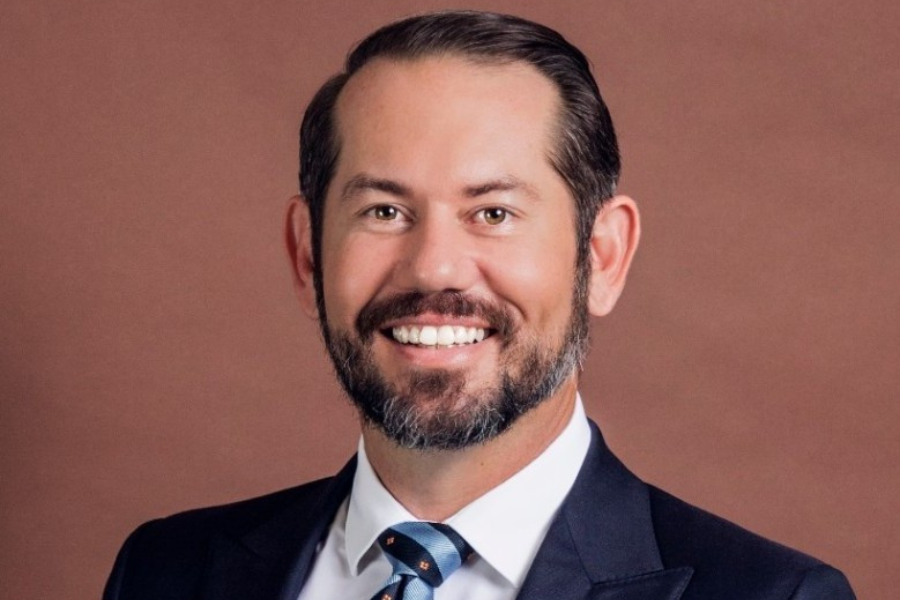

Troy Sharpe, CEO of Oak Harvest Investment Services, says his interest in investments — and in retirement planning in particular — took root in his childhood. Having been raised by his grandparents, he witnessed his grandfather’s health crisis, which occurred shortly after he stopped working.
“My grandfather was five weeks into retirement when he had two aortic aneurysms,” he says. Sharpe spent every day in the hospital with him, witnessing firsthand the challenges of health care in retirement. This experience was both an emotional and financial eye-opener, highlighting the gaps in the existing system of financial planning for retirees.
It ultimately led Sharpe to scrutinize the retirement planning industry more closely.
“I realized that many firms lacked foresight in planning,” he said. “It was all about managing the money with no real comprehensive strategy.”
Armed with a finance degree, he set about founding Oak Harvest Investment Services — with a focus on plugging those gaps for clients looking at retirement planning.
“It’s not just about the investments,” Sharpe explained. “Once you enter the distribution phase of retirement, the strategy changes. It’s about understanding the impact of today’s decisions on future security.”
Sharpe underscores the importance of addressing the emotional aspects of financial decisions in retirement — not just the monetary.
“From our side, one of the big challenges is helping clients stick to the plan through ups and downs,” he said. “We build relationships and help them stay the course.”
Oak Harvest’s approach to retirement planning is not just about building wealth but also about understanding and managing the tax implications of retirement income.
“You’re forced to start taking money out of your retirement accounts at a certain age, and all that income is taxable,” Sharpe said. “Once you hit a certain age, all that income is taxable. So if you’re not planning properly leading up to that point, you could find yourself in a bit of a tax nightmare.”
However, the journey is not without its challenges. As Sharpe says, regulation is a significant factor for the industry.
“There’s always an extra form to sign, an extra phone call to make. It becomes more burdensome from a cost and time standpoint,” he said. “We don’t necessarily disagree with the spirit of what they’re trying to do. Just in practice, there are unintended consequences. It does create a more costly environment to operate, which in turn can hurt consumers, especially lower-asset clients.”
An additional challenge advisors face is communicating the change in the economic environment and presenting expectations clearly to clients. The shift from a zero-interest-rate world to “higher for longer” presents additional difficulties related to the impact on financial markets, volatility, and expected asset returns. Most consumers don’t fully grasp that higher interest rates directly decrease the value of future cash flows and therefore asset prices.

Rajesh Markan earlier this year pleaded guilty to one count of criminal fraud related to his sale of fake investments to 10 clients totaling $2.9 million.

From building trust to steering through emotions and responding to client challenges, new advisors need human skills to shape the future of the advice industry.

"The outcome is correct, but it's disappointing that FINRA had ample opportunity to investigate the merits of clients' allegations in these claims, including the testimony in the three investor arbitrations with hearings," Jeff Erez, a plaintiff's attorney representing a large portion of the Stifel clients, said.

Chair also praised the passage of stablecoin legislation this week.

Maridea Wealth Management's deal in Chicago, Illinois is its first after securing a strategic investment in April.
Orion's Tom Wilson on delivering coordinated, high-touch service in a world where returns alone no longer set you apart.
Barely a decade old, registered index-linked annuities have quickly surged in popularity, thanks to their unique blend of protection and growth potential—an appealing option for investors looking to chart a steadier course through today's choppy market waters, says Myles Lambert, Brighthouse Financial.
